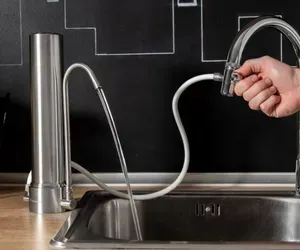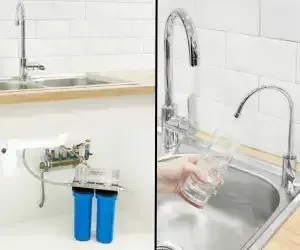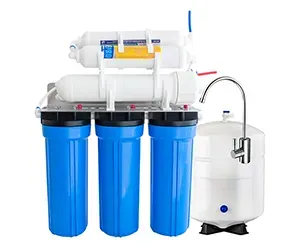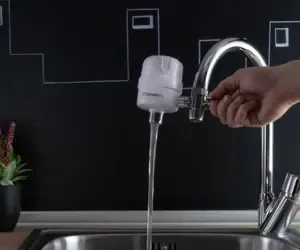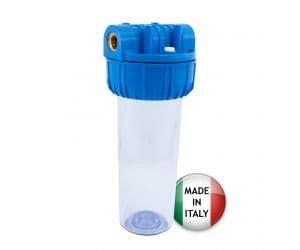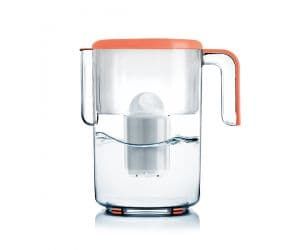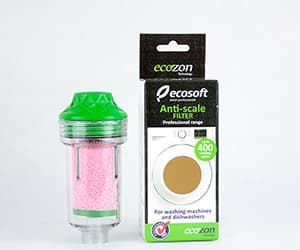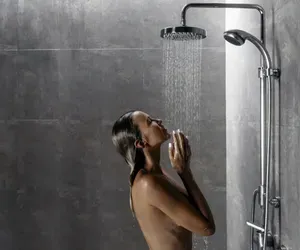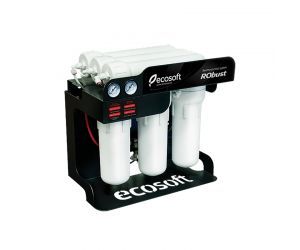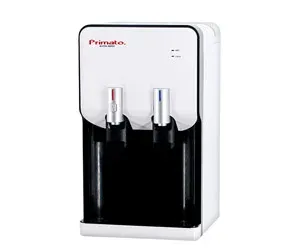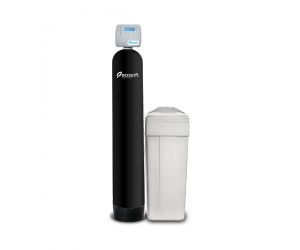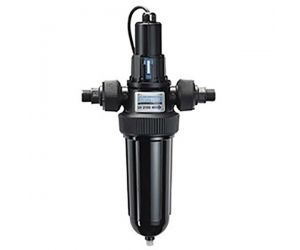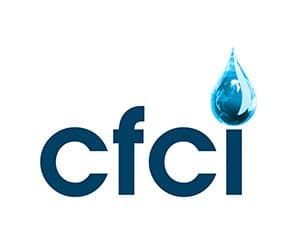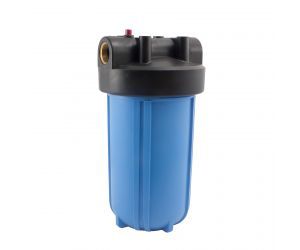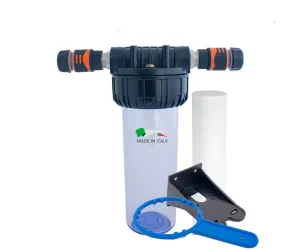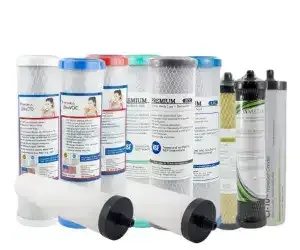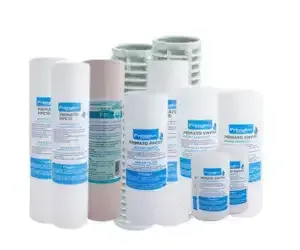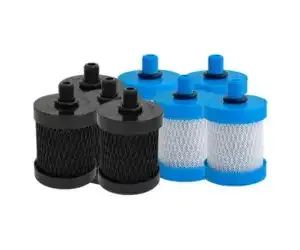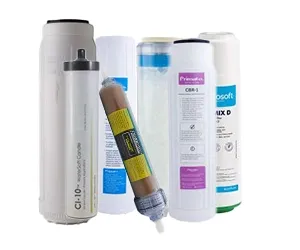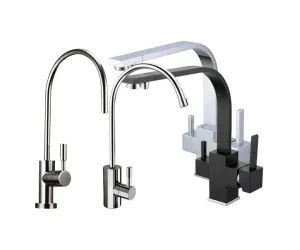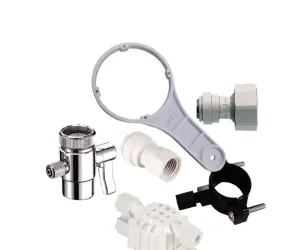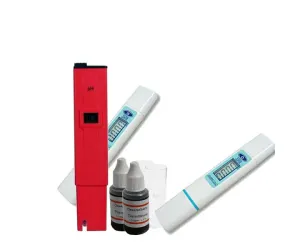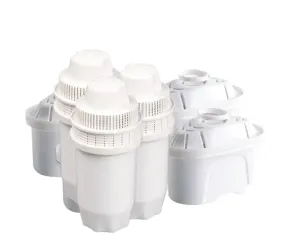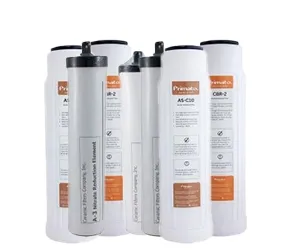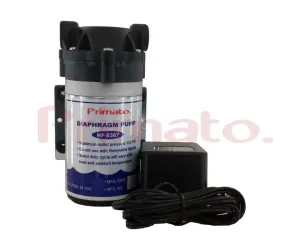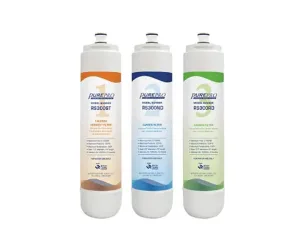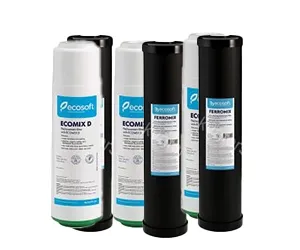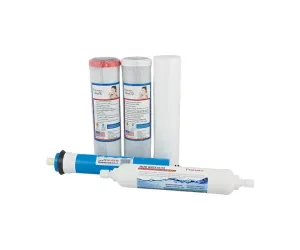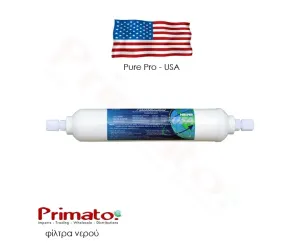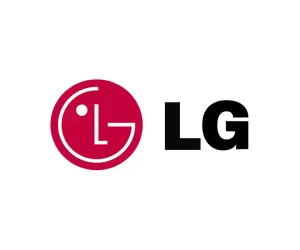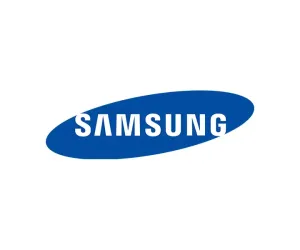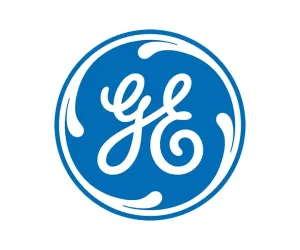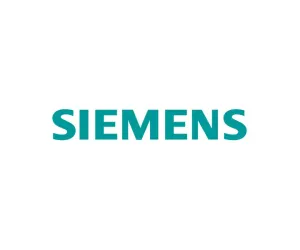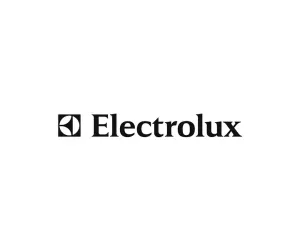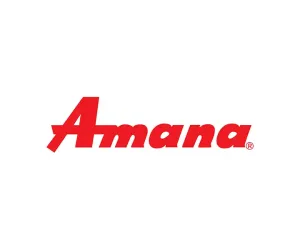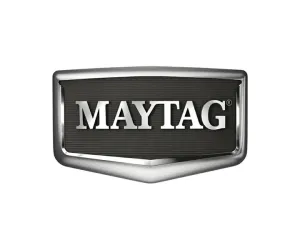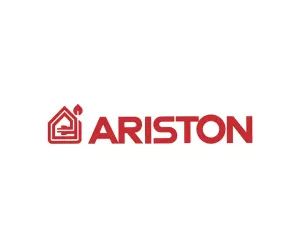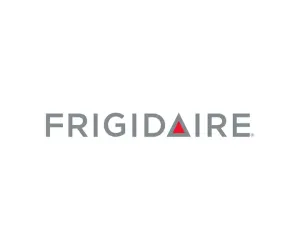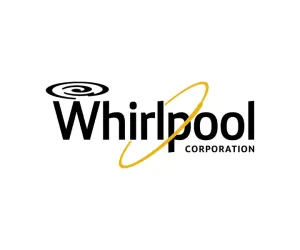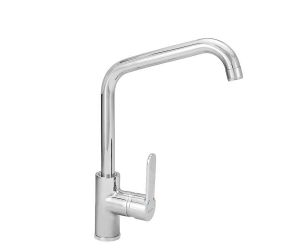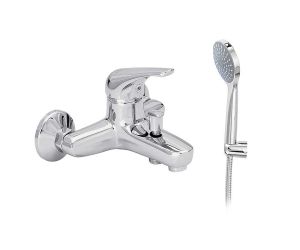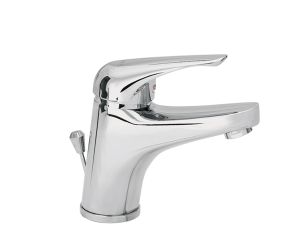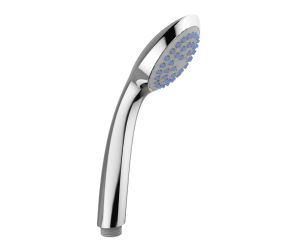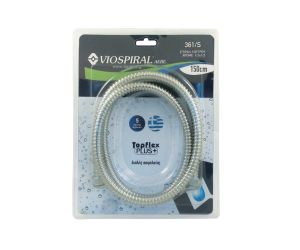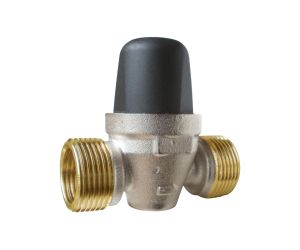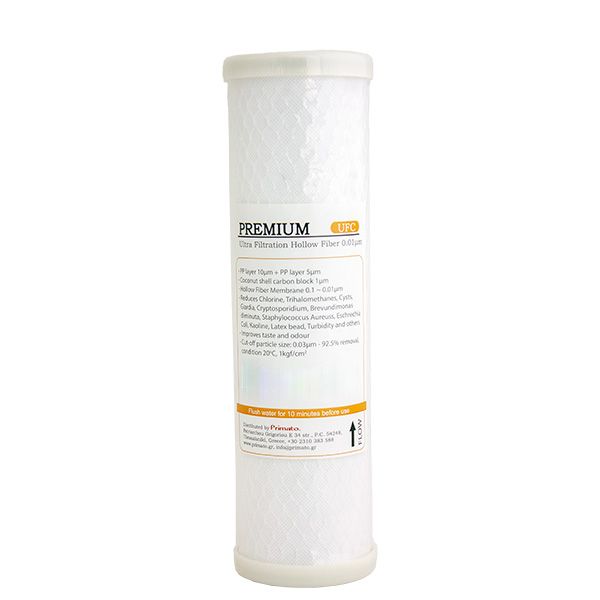Coconut active carbon filter with Hollow Fiber Ultra Filtration 0.01 μm 10" PREMIUM UFC
- Shipping Cost
Shipping Zones and Costs
Zone A
Cost €4. Free on orders above €50
Countries: Greece
Zone B
Cost €5. Free on orders above €100
Countries: Bulgaria, Cyprus
Zone C
Cost €8. Free on orders above €100
Countries: Romania
Zone D
Cost €15. Free on orders above €100
Countries: Austria, Vatican, Belgium, France, Germany, Denmark, Estonia, United Kingdom, Ireland, Italy, Spain, Croatia, Latvia, Lithuania, Luxembourg, Malta, Monaco, Netherlands, Hungary, Poland, Portugal, Slovakia, Slovenia, Sweden, Czechia, Finland
Zone E
Cost €18. Free on orders above €100
Countries: Albania, Andorra, Bosnia and Herzegovina, North Macedonia, Gibraltar, Guernsey, Greenland, Switzerland, Iceland, Canary Islands, Kosovo, Liechtenstein, Montenegro, Faroe Islands, Norway, San Marino, Serbia, Jersey, Turkey
Zone F
Cost €21. Free on orders above €100
Countries: Egypt, Algeria, United Arab Emirates, USA, Jordan, Israel, Canada, Qatar, Kuwait, Lebanon, Libya, Morocco, Mexico, Bahrain, Oman, Ukraine, Saudi Arabia, Tunisia
Zone G
Cost €24. Free on orders above €100
Countries: Vietnam, Japan, India, Indonesia, Cambodia, China, South Korea, North Korea, Laos, Macau, Malaysia, Maldives, Bangladesh, Bhutan, Brunei, Myanmar, Nepal, Pakistan, Singapore, Sri Lanka, Taiwan, Thailand, Philippines, Hong Kong
Zone H
Cost €30. Free on orders above €100
Countries: Saint Barthelemy, Saint Vincent, Saint Helena, Saint Eustatius, Saint Kitts, Saint Lucia, Saint Martin, Azerbaijan, Ethiopia, Ivory Coast, American Samoa, East Timor, Angola, Anguilla, Antigua, Argentina, Armenia, Aruba, Australia, Afghanistan, Haiti, Vanuatu, Venezuela, Bermuda, Bolivia, Brazil, French Guiana, Georgia, Gambia, Gabon, Ghana, Guam, Guadeloupe, Guatemala, Guyana, Guinea, Equatorial Guinea, Guinea-Bissau, Grenada, Dominica, Dominican Republic, El Salvador, Eritrea, Zambia, Zimbabwe, Iran, Iraq, Kazakhstan, Cameroon, Central African Republic, Kenya, Cayman Islands, Kiribati, Colombia, Comoros, Congo, Zaire, Costa Rica, Cuba, Cook Islands, Curacao, Kyrgyzstan, Lesotho, Belarus, Liberia, Mayotte, Malawi, Mali, Mariana Islands, Marshall Islands, Martinique, Mauritius, Mauritania, Micronesia, Mongolia, Mozambique, Moldova, Montserrat, Barbados, Bahamas, Belize, Benin, Bonaire, Botswana, Burkina Faso, Burundi, Namibia, Nauru, New Zealand, New Caledonia, Nevis, Falkland Islands, Niger, Nicaragua, Niue Islands, South Sudan, South Africa, Honduras, Uganda, Uzbekistan, Uruguay, Palau, Panama, Papua New Guinea, Paraguay, British Virgin Islands, US Virgin Islands, Peru, Puerto Rico, Cape Verde, Reunion Islands, Rwanda, Russia, Samoa, Sao Tome and Principe, Senegal, Seychelles, Sierra Leone, Solomon Islands, Somalia, Northern Somalia, Eswatini, Sudan, Suriname, Syria, Tanzania, Tajikistan, Tahiti, Jamaica, Djibouti, Togo, Tonga, Tuvalu, Turkmenistan, Turks and Caicos, Chad, Trinidad and Tobago, Yemen, Fiji, Chile
In a nutshell:
- It filters water in 4 stages
- In the first stage, there is a layer of polypropylene with a permeability of 10μm. At this stage, all solid particles that are larger than 10μm, such as mud, soil, rust, suspended particles, etc., are reduced.
- In the second stage, there is a layer of polypropylene with a permeability of 5μm. Here, even more particles, such as fine sand, plastic particles, etc. are reduced. The first two stages protect the next stages and facilitate water flow.
- In the third stage, there is solid activated carbon made from coconut with a permeability of 1 μm. At this stage, chlorine, chloroform, unpleasant taste and odor, organic carbon, industrial organic compounds (tetrachloroethylene, trichloroethylene), dissolved organic compounds, organic dye, soluble iron, manganese, industrial waste and other harmful substances are reduced.
- Internally, in the fourth stage, the filter has Hollow Fiber membranes with a permeability ranging from 0.1 to 0.01μm. These membranes reduce turbidity, cysts, Giardia, Cryprosporidium, Brevundimonas diminuta - 100%, Staphylococcus Aureuss - 100%, Escherichia Coli - 100%, Kaoline - 100%, Latex bead - 0.05μm 98.5% and various other bacteria and colloids.
- Certifications: NSF 42
- Dimensions 2.5” X 10”
In detail:
1st stage - Solids Filter 10μm
It reduces suspended particles with a permeability of more than 10μm (mud, soil, rust, etc.)
2nd stage - Solids Filter 5μm
It reduces suspended particles with a permeability of more than 5μm (fine sand, plastic particles, etc.)
3rd stage - Solid activated carbon filter from coconut 1μm
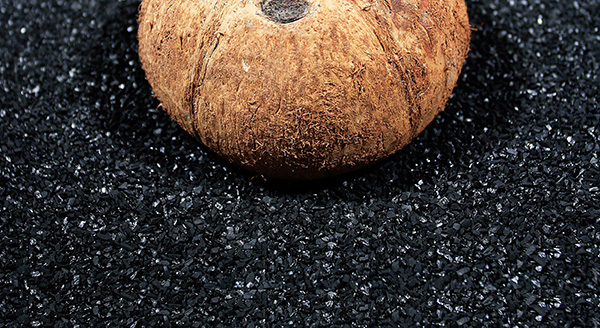
Activated carbon filters are the most effective method of water treatment and purification. They are used either alone, in single water filters, or in combination with other filters depending on the problem of the area and the quality of the water. Activated carbon has a huge surface area - consider that half a kilo of activated carbon can occupy an area of 0.5 km2 (half a square kilometer).
The activated carbon in this filter reduces chlorine, chloroform, unpleasant taste and odor, suspended particles, sand, rust, mud, soils, total organic carbon, industrial organic compounds (tetrachloroethylene organelles, organelles, trichloroethylene), dissolved iron, manganese, industrial waste and many other harmful substances.
4th stage - Hollow Fiber Ultra Filtration
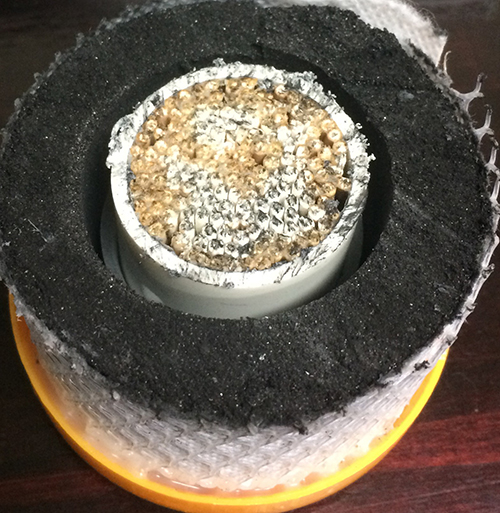
Inside this filter, there are special Hollow Fiber Membranes that fall into the Ultra Filtration category. The Ultra Filtration category includes those filters with a permeability from 0.1 to 0.01 μm. By permeability, we refer to the diameter of the holes that the water tries to penetrate. Ordinary activated carbon filters as well as ceramic filters reach up to 0.2 μm. However, hollow fiber membranes are much narrower and therefore can filter out much more contaminants.
Ultra Filtration technology uses Hollow Fiber membranes to change the way we clean and process water around the world. Until a few years ago, this technology was so expensive that we only found it in very large water recycling plants. However, as technology advances, it is becoming cheaper and cheaper, so it can now be installed in domestic water filters.
It removes chlorine, bacteria, viruses, colloids, Giardia, Crypto (commonly found in tanks and springs that do not belong to a city water network), suspended solids, turbidity, microorganisms, TOCs, etc.
How it works
Hollow Fiber is a semi-permeable mebrane which various contaminants try to penetrate. All elements that are bigger than 0.01 μm do not manage to penetrate it, so they do not reach your glass.
Suspended solids and high molecular weight substances remain outside the filter because they simply do not fit to pass through, while pure water and soluble low molecular weight substances pass through the membrane into your glass.
This separation process is used in industry and research for the cleaning and concentration of macromolecular (103 - 106 Da) solutions, especially protein ones.
Water treatment systems fall into one of these categories: Particle Filtration, Micro-Filtration, Ultra-Filtration, Nano-Filtration and Reverse Osmosis. They belong to one of these categories depending on their permeability, i.e. how narrow the holes through which the water tries to pass are.
In particular, the categories to which water treatment systems belong are as follows:
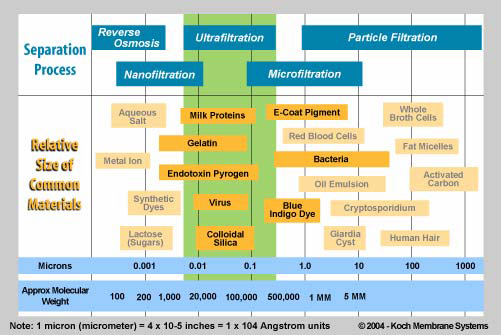
Particle Filtration (1000μm - 10μm). Central water supply filters belong in this category. They remove dirt, stones and rust.
Micro-Filtration 10μm - 0.1μm. This category includes the majority of activated carbon filters as well as ceramic ones.
Ultra-Filtration 0.1μm - 0.01μm. This category includes Hollow Fiber Membranes.
Nano-Filtration (0.01μm - 0.001μm). This technology is still very expensive for domestic use and there are no filters to be installed on home appliances.
Reverse Osmosis (0.0001μm). Reverse osmosis systems are recommended for areas with very "difficult waters", such as the Greek islands and Halkidiki. They literally remove all harmful substances from water as well as salts, but they are expensive and throw a lot of water into the sewer in order to operate.
So this filter combines micro-filtration with ultra-filtration. It is the best filter you can install at your home so that you and your family can enjoy safe, healthy and crystal clear water!
